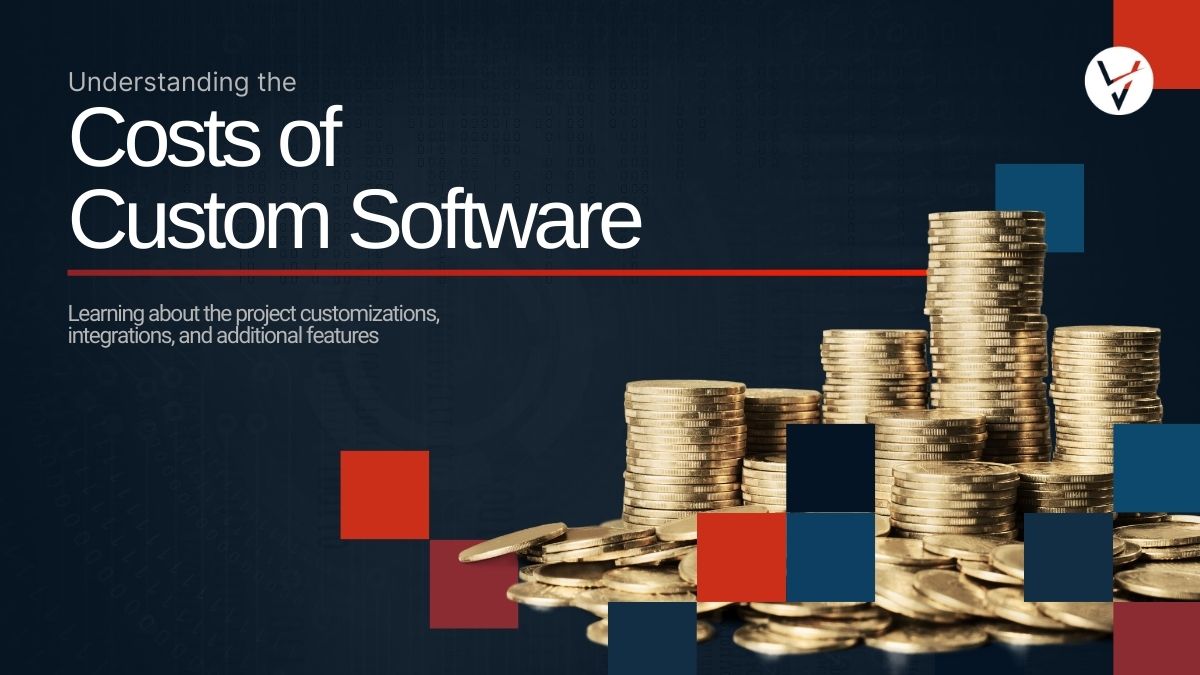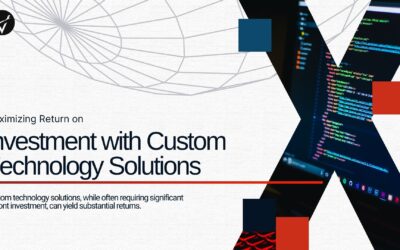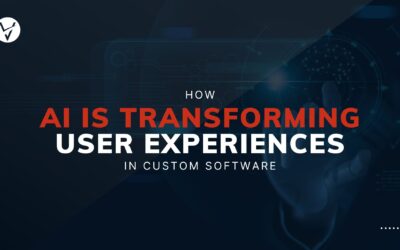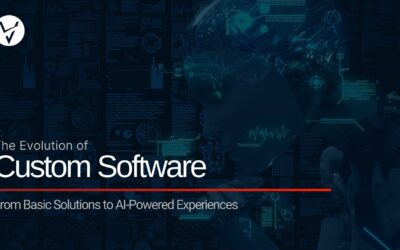Understanding the Costs of Custom-Built Technology Solutions
One of the first questions asked when having conversations about project is the custom software cost. Businesses across various industries are increasingly turning to custom technology solutions to enhance their operations, streamline processes, and gain competitive advantages. However, navigating the costs with developing custom software, mobile applications, artificial intelligence (AI) integrations, and other tech innovations can be challenging. Here, we break down what you might expect to spend in different areas, including software, mobile apps, AI, trackers, integrations, automation, websites, portals, databases, and business intelligence.
Software Development and Custom Software Cost
Custom software development costs are influenced by several critical factors, including the project’s complexity, the technology stack, and the overall scale of the solution. For small-scale applications, which might involve limited functionality and a simpler architecture, development costs can begin at around $20,000. These projects often require fewer resources and less time to complete. On the other hand, enterprise-level solutions, which demand extensive feature sets, high levels of customization, and robust security measures, can surpass $500,000. These large-scale projects often need a software development team , designers, and project managers, along with advanced technologies and infrastructure.
Comprehensive Understanding for Best Custom Software Solutions
Additionally, factors such as the integration of third-party services, compliance with industry standards, and the need for scalability and high performance can further drive up custom software costs. Therefore, a comprehensive understanding of project requirements and careful planning are essential to accurately estimate and manage the budget for custom software development.

Mobile Applications Custom Software Cost
Developing custom mobile applications involves various cost factors, starting from the app’s functionality and complexity to the choice of development approach—native, hybrid, or cross-platform. A basic app with limited features, such as a simple user interface and minimal backend requirements, might cost around $10,000. As the app’s functionality expands to include advanced features like real-time synchronization, third-party API integrations, secure user authentication, and robust backend infrastructure, custom software costs can escalate significantly. These costs often exceed $150,000, reflecting the investment required for the implementation of these complex functionalities. Native apps, which are developed specifically for iOS or Android, typically offer the best performance and user experience but require separate development efforts for each platform, increasing costs. Conversely, hybrid and cross-platform approaches allow for a single codebase to be deployed across multiple platforms. This potentially can reduce development time and cost but might involve trade-offs in performance and user experience. Therefore, the final cost of mobile app development is a careful balance between the desired functionality, performance requirements, and chosen development strategy.
Artificial Intelligence Custom Software Cost
AI development costs are influenced by several factors, including the complexity of the models and the amount of data needed for training. The particular use case, such as natural language processing, machine learning, or image recognition, also plays a significant role. These variables collectively determine the investment necessary to develop and deploy AI solutions effectively. Initial projects might start around $30,000, but more sophisticated AI can require investments well into the hundreds of thousands of dollars.
Chat Bots for Businesses Who Value Customization
For instance, developing a natural language processing (NLP) model for a customer service chatbot might start with simpler algorithms and less extensive datasets. This leads to initial costs around $30,000. Creating a highly sophisticated AI for tasks such as advanced image recognition or autonomous driving involves several key steps. These include developing complex neural networks, sourcing and processing vast amounts of high-quality data, and conducting extensive testing and validation to ensure the AI’s effectiveness and reliability.
This level of sophistication often requires specialized hardware like GPUs and a team of experts in AI and data science. These factors drive costs well into the hundreds of thousands or even millions of dollars.
Built With the Long-Term in Mind
Furthermore, ongoing maintenance, updates, and improvements add to the long-term investment, ensuring the AI remains effective and up-to-date with the latest technological advancements and data security standards.

Trackers’ Custom Software Cost
The cost of developing custom tracking solutions, like those for logistics or retail inventory management, typically begins at $15,000 for basic systems that offer fundamental tracking functionalities. These basic solutions might include features such as location tracking, simple inventory updates, and basic reporting tools. However, as the requirements grow to include advanced tracking capabilities—such as real-time data processing, predictive analytics, and sophisticated reporting dashboards—the custom software costs can increase substantially. Integration with existing enterprise resource planning (ERP) systems, customer relationship management (CRM) systems, and other third-party applications further adds to the complexity and cost.
The Value of Security for Tracking Software
Additionally, the need for robust security measures to protect sensitive data and ensure compliance with industry regulations can also drive up expenses. Advanced features such as geofencing, automated alerts, and mobile app integration for on-the-go access contribute to the higher end of the cost spectrum. Implementing these features often demands extensive development and testing efforts to ensure seamless operation across various platforms and devices. This complexity justifies the investment in creating a comprehensive and user-friendly solution. Consequently, a highly customized, fully integrated tracking solution for large-scale operations can easily reach and exceed costs in the six-figure range.

Integrations Custom Software Cost
Integrating various software systems or platforms involves a range of tasks that can significantly impact the overall cost. For simpler integrations, such as establishing basic API connections to enable data sharing between two systems, costs can start at around $5,000. These straightforward integrations typically involve minimal configuration and a limited scope of data exchange. However, when dealing with more extensive integrations, the complexity increases. This involves intricate data mappings, accurately correlating and transforming data from multiple sources to fit the target system’s requirements. Additionally, it includes implementing secure data transfer protocols to safeguard sensitive information during exchange.
Complexity of Custom Software
These complex integrations often require detailed planning, thorough testing, and ongoing maintenance to ensure reliability and security, pushing the costs beyond $55,000. Factors such as real-time data synchronization, compliance with industry-specific regulations, and the seamless integration of multiple stakeholders or legacy systems can further increase costs. These considerations add complexity to the development process, requiring additional resources and expertise to ensure successful implementation. Consequently, achieving a cohesive and efficient integrated system often demands substantial investment in both time and resources.
Automation Custom Software Cost
The cost of implementing automation technologies varies widely, primarily based on the complexity and scope of the processes to be automated. For small businesses, automation solutions can begin at around $10,000, covering basic tasks such as automating simple administrative functions, managing customer communications, or streamlining appointment scheduling. These solutions typically involve off-the-shelf software that requires minimal customization and can quickly yield productivity gains.
As businesses scale and aim to automate more intricate processes, such as entire production workflows or sophisticated data analytics, the costs can rise substantially. Implementing automation in areas like supply chain management or customer service operations can also lead to increased expenses.
Automation in Large-Scaled Projects
Large-scale automation projects often involve custom-built solutions tailored to the specific needs of the organization, incorporating advanced technologies such as artificial intelligence, machine learning, and robotics. These projects necessitate significant investment in terms of software development, system integration, and employee training, with custom software costs frequently exceeding $50,000.
Automation and Maintenance
Additionally, the need for ongoing maintenance, support, and updates to keep the automation systems running efficiently and adapting to changing business needs further contributes to the overall investment. Consequently, while the initial outlay for large-scale automation can be substantial. The long-term benefits in terms of reduced manual effort, increased accuracy, and enhanced operational efficiency often justify the expense.

Website Custom Software Cost
The cost of developing a custom web development can vary dramatically based on the site’s design complexity, functionality, and the level of customization required. For instance, a basic one-page design, suitable for a personal portfolio or a simple informational site, can start at around $250. This type of site typically involves minimal design work and limited interactivity. On the other end of the spectrum, a fully integrated, large-scale business website with advanced functionalities can cost $50,000 or more. Such a site might include robust eCommerce capabilities, enabling secure online transactions, inventory management, and customer relationship management features. It may also involve custom animations, interactive elements, and multimedia content to enhance user engagement and experience.
Customer Data and Security Measures for Projects
High-level security measures are essential to protect sensitive customer data and ensure compliance with industry regulations, adding to the custom software costs. Moreover, these comprehensive websites often require integration with various third-party services and applications, such as payment gateways, shipping providers, and marketing automation tools. Ongoing maintenance, updates, and scalability considerations further contribute to the overall investment. This in turn ensures the website remains functional, secure, and capable of supporting the business’s growth and evolving needs.
Portal Custom Software Cost
The development of custom portals, such as those for customers or employees, encompasses a wide range of functionalities and features that can significantly impact the overall cost. Starting at around $20,000, a basic portal might include standard features such as user authentication, basic content management, and standard communication tools. However, as the requirements become more complex, the costs can escalate to $100,000 or more. Advanced security features, such as multi-factor authentication, encryption, and compliance with data protection regulations, are essential for safeguarding sensitive information and can add considerably to the cost. Personalization capabilities, which tailor the user experience based on individual preferences and behaviors, require sophisticated algorithms and a robust data management system, further driving up expenses.
Integrations with Enterprise Applications
Additionally, integration with back-end systems, such as ERP, CRM, and other enterprise applications, is often necessary to provide seamless access to data and services. This necessitates custom API development and thorough testing. These integrations ensure that the portal functions efficiently within the broader IT ecosystem, providing users with real-time information and transactional capabilities. As such, the development of a comprehensive, secure, and highly functional portal represents a significant investment. However, it offers substantial returns in terms of enhanced user engagement, operational efficiency, and data-driven decision-making.

Database-Driven Application Custom Software Cost
Custom database development involves a range of factors that influence the overall cost, which can vary from $10,000 to $75,000 or more. At the lower end of the spectrum, a straightforward database designed to handle limited data volumes and simple data structures might suffice for small businesses. However, as the complexity increases, so do the costs. For instance, databases that manage large volumes of data or require intricate relational structures demand more sophisticated design and development efforts.
Scalability in Database-Driven Applications
Additionally, scalability requirements, which ensure that the database can efficiently grow and handle increasing amounts of data and user queries over time, add to the complexity and expense. Implementing robust security measures to protect sensitive information, such as encryption and access controls, also contributes to higher costs. Integration with other systems, such as ERP or CRM solutions, necessitates custom API development and extensive testing to ensure seamless data flow and operational efficiency.
Additional Features
Furthermore, features like real-time data processing, advanced analytics capabilities, and high availability for mission-critical applications further elevate the development effort and associated costs. Thus, while a basic custom database can be relatively affordable, more comprehensive solutions that meet higher performance, security, and scalability standards require a substantial investment.
Business Intelligence Costs of Custom Software
The development of custom business intelligence (BI) solutions spans a broad cost range, from $10,000 for basic implementations to over $100,000 for comprehensive systems. At the entry level, BI solutions might consist of simple dashboards and reporting tools that provide visualizations of key performance indicators (KPIs) and basic data insights. These solutions typically draw from a limited number of data sources and offer fundamental analysis capabilities. However, as the scope and sophistication of the BI system expand, so do the costs.
Advanced BI Solutions
Advanced BI solutions integrate data from numerous and varied sources, including internal databases, cloud services, and external APIs, requiring complex data integration and ETL (extract, transform, load) processes. Comprehensive systems often feature robust data warehousing solutions to store and manage large datasets efficiently.
Adding Predictive Analytics in Algorithms
Additionally, incorporating predictive analytics leverages machine learning algorithms to forecast future trends and provide deeper insights, necessitating advanced development and significant computational resources. The customization of user interfaces to meet specific business needs, coupled with rigorous testing and validation to ensure accuracy and reliability, also contribute to higher costs. Moreover, ongoing maintenance, user training, and support services are essential to keep the BI system operational and up-to-date, further adding to the investment.
BI Investments
Basic BI tools offer immediate value at a lower cost; however, fully featured, enterprise-grade BI systems represent a substantial yet worthwhile investment. Organizations aiming to leverage data-driven decision-making capabilities can benefit significantly from these comprehensive solutions.

Conclusion for Average Cost of Projects
Investing in custom technology solutions demands careful financial planning and a deep understanding of your specific business needs and the potential return on investment (ROI). Custom software costs can range widely based on factors such as complexity, scope, and the level of customization required. It is crucial to collaborate with experienced developers who can offer detailed cost breakdowns and realistic project timelines, ensuring transparency and enabling better budgeting decisions.
Custom technology solutions should not be viewed merely as expenses but as strategic investments aimed at enhancing operational efficiency, improving accuracy, and ultimately boosting the business’s profitability. Well-designed custom solutions can streamline workflows, reduce manual labor, minimize errors, and provide actionable insights through advanced analytics. These benefits contribute to a more agile and competitive business, capable of responding quickly to market changes and customer demands.
Choosing ViviScape for custom software development
By aligning technology investments with business objectives and carefully managing the development process, organizations can achieve substantial long-term gains that justify the initial expenditure. This is why partnering with ViviScape for your software needs is so vital to creating sophisticated software solutions. ViviScape brings a wealth of expertise and a proven track record in developing custom technology tailored to meet the unique needs of each business. Their experienced team ensures that every aspect of the project, from initial consultation and cost estimation to development and deployment, is meticulously planned and executed.
By working with ViviScape, businesses benefit from a strategic partner who understands the intricacies of their industry and can deliver solutions that drive efficiency, accuracy, and profitability. ViviScape’s commitment to quality, transparency, and client satisfaction ensures that the software not only meets current needs but is also scalable and adaptable for future growth. This partnership enables businesses to leverage cutting-edge technology to stay competitive. It also allows businesses to innovate continuously and achieve a higher return on investment. Thus, this makes the initial expenditure a strategic move towards sustained success.

Unlock Your Business’s Potential with ViviScape’s Custom Software Solutions!
Are you ready to transform your business with cutting-edge technology? At ViviScape, we specialize in developing sophisticated, custom software solutions tailored to your unique needs. We love partnering with businesses who want to completely change their own industry!
Why Choose ViviScape?
Expertise & Experience
Our team of seasoned developers brings a wealth of expertise to every project, ensuring top-notch quality and innovation.
Strategic Alignment
We align technology investments with your business objectives to drive efficiency, accuracy, and profitability.
Comprehensive Service
From initial consultation and cost estimation to development and deployment, we manage every aspect of the process meticulously.
Future-Ready Solutions
Our custom software is not just built for today but scalable and adaptable for tomorrow’s growth.
Transform Your Business Today!
From initial consultation to seamless implementation, we’ll guide you every step of the way, ensuring that your software solution aligns perfectly with your business objectives. Partner with ViviScape and embark on a journey of transformation and growth.




